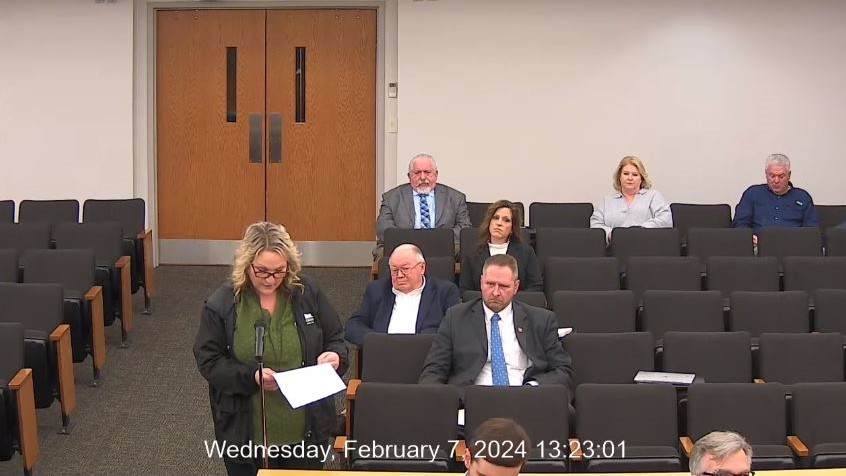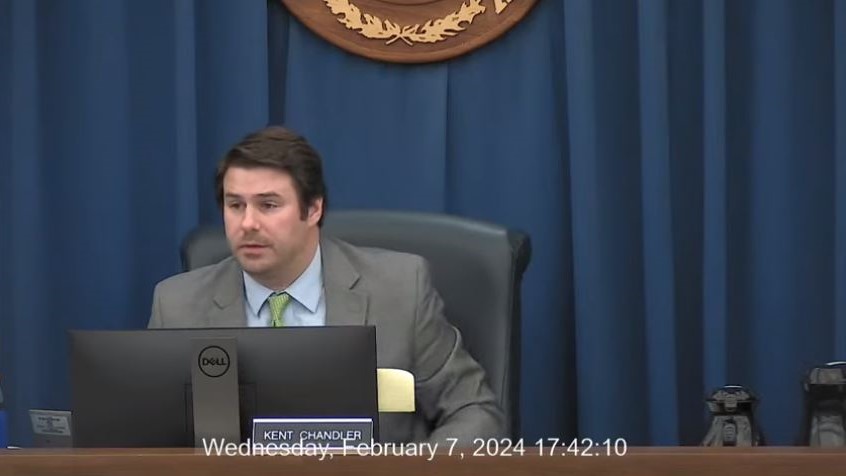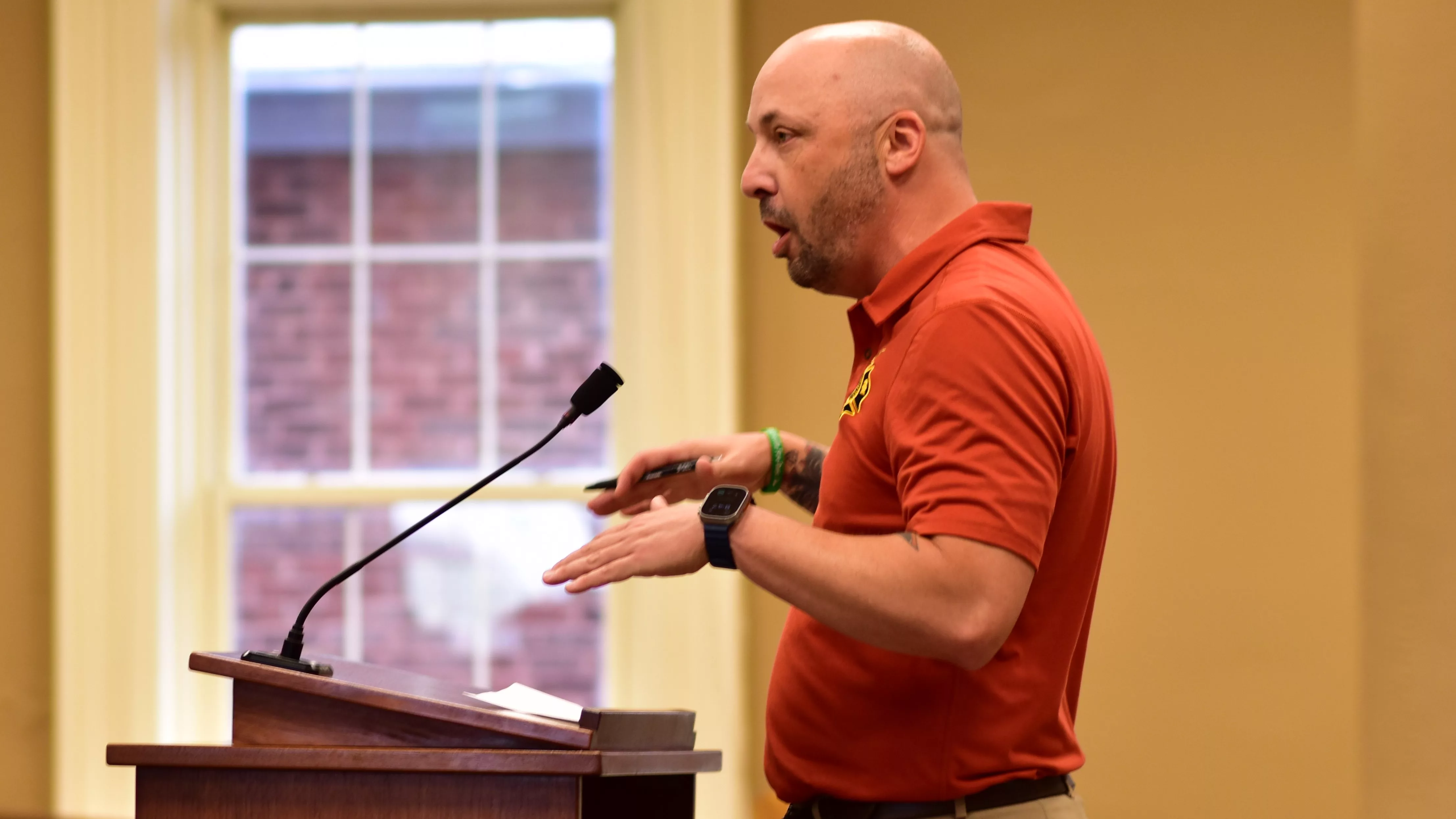
Interested parties for the planned, but not yet approved, Dogwood Corners descended upon Frankfort last Wednesday for the much-anticipated Merchant Plant Application hearing with the Kentucky Public Service Commission — either to put forth final support or opposition for the proposed energy site in Christian County.
At stake: the completion of a 670-acre solar installation that would create more than 125 megawatts of electricity for the Tennessee Valley Authority and other interested electricity brokers. And the harmony of a community that, for the most part, seems less than enthused about its potential arrival.
With all post-hearing briefs centered on legalities and heard evidence due by February 23, the siting board will begin its case considerations February 24. A verdict must be rendered by the end of the 180-day statutory mark of the project’s final submission, which is March 8.
A large contingent for Christian County was in attendance, including Heather Cook, Krystal Kirkman, Brian Burkhead, Wayne Hunt, Judge-Executive Jerry Gilliam, District 8 Magistrate John Bruce and Senator Whitney Westerfield.
Cook emphatically, and emotionally, asked the siting board to “please reject the plan,” noting she has considered selling her property altogether if this succeeds — but knows she would have to disclose the project’s arrival, tanking property values.
Kirkman cited peer-reviewed research from the University of Rhode Island and University of Texas, ushering that citizens need to be “smarter at siting solar installations,” and that they should be in “less populated areas.”
Furthermore, Kirkman also pointed the PSC to Madison County, Indiana, where further drafted protections allow for merchant solar properties — but with community safeguards.
Burkhead turned to 10 theses written by “Citizens for Responsible Solar,” on why industrial solar is “not right for agricultural and rural communities.”
These new key points attested:
*That any project that has proposed land in production agriculture should be rejected by boards and commissions.
*That the land is forever destroyed by the grading, pile-driving and trenching in construction, and that it would take years, and maybe never, for the property to return to its tillable state.
*That solar projects destroy wildlife habitats.
*That solar is inefficient compared to the land it consumes.
*And that solar projects should not be placed near wetlands, rivers, streams, nor inhibit preservation of historic sites.
Following a public meeting with Oriden and Mitsubishi representatives at New Barren Springs Church, Burkhead said he confirmed to officials the location of five natural springs in the construction’s vicinity, and just last week was reminded by an unnamed community member of a large Indian encampment and the possibility of burial grounds near the proposed site.
It’s also of Burkhead’s belief that the only acceptable public comments “for” or “against” the proposal should come from those who live in the community, or pay property taxes in Christian County, and those who would be affected, or have already signed agreements, should be more involved in the litigation process.
Gilliam told Committee Chair Kent Chandler that the passing of an original and revised solar ordinance came with the intent of “protecting citizens…from what seems like a bombardment of outsiders coming in, soliciting land for solar.”
Megan Stahl, Oriden’s main representative, testified that if approved, construction would begin somewhere in the 2026-27 window, and that peak construction would last 12-to-18 months.
She also gave a deep timeline of the project, which she said actually began with Christian County officials and landowners in 2019. According to her and Oriden, this included participating landowners and neighbors, and in 2020 a meeting with a “Christian County planning department” took place. From 2020-21, there was continued outreach with landowners in the area, as well as other participating landowners and neighbors.
In February 2022, Stahl added there was a meeting the Christian County Fiscal Court’s budget committee, and June 2022 coalesced into a meeting with more county executives and landowners — and this parlayed into a project acceptance and industrial revenue bond from the governing body June 14, 2022.
Two public meetings then occurred in Christian County: September 2022 and August 2023. She said these moments were used for community feedback, expert and consultant discussion, and an open house. Stahl, herself, attended three fiscal court meetings in November 2022, and several in-person and digital conversations with the county attorney’s office, Westerfield and the interested public also happened.
Stahl also confirmed that the direct owners of the project were Oriden and Steel City Energy, but often had to refer questions from the PSC to Project Manager Seth Wilmore, and this drew some ire.
According to sources, more than 60 homes are affected by this project.
The full hearing can be found here: https://www.youtube.com/watch?v=DCvK5EGC6KE&t=16s
Steel City Energy: scconserve.com
Oriden: oridenpower.com








